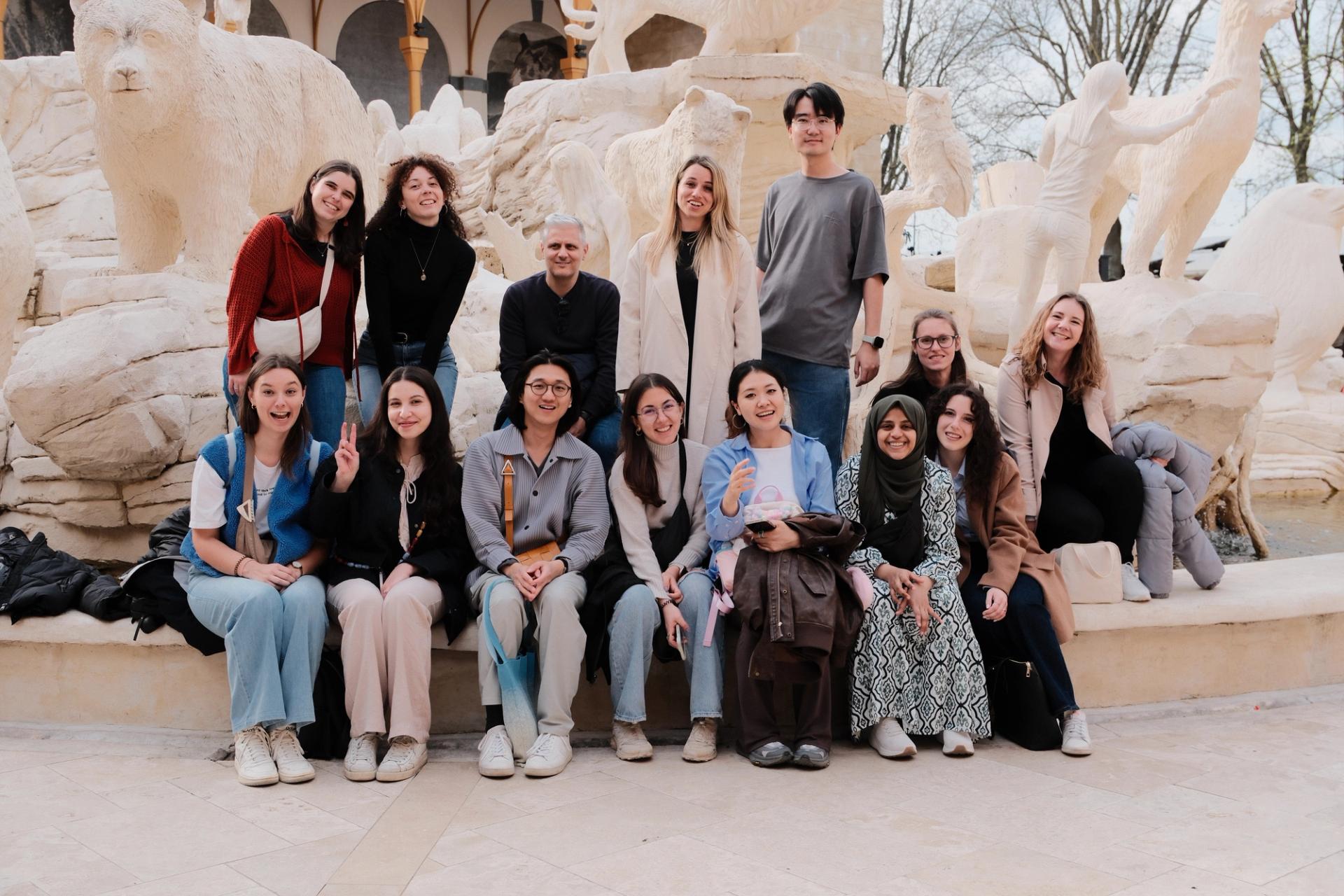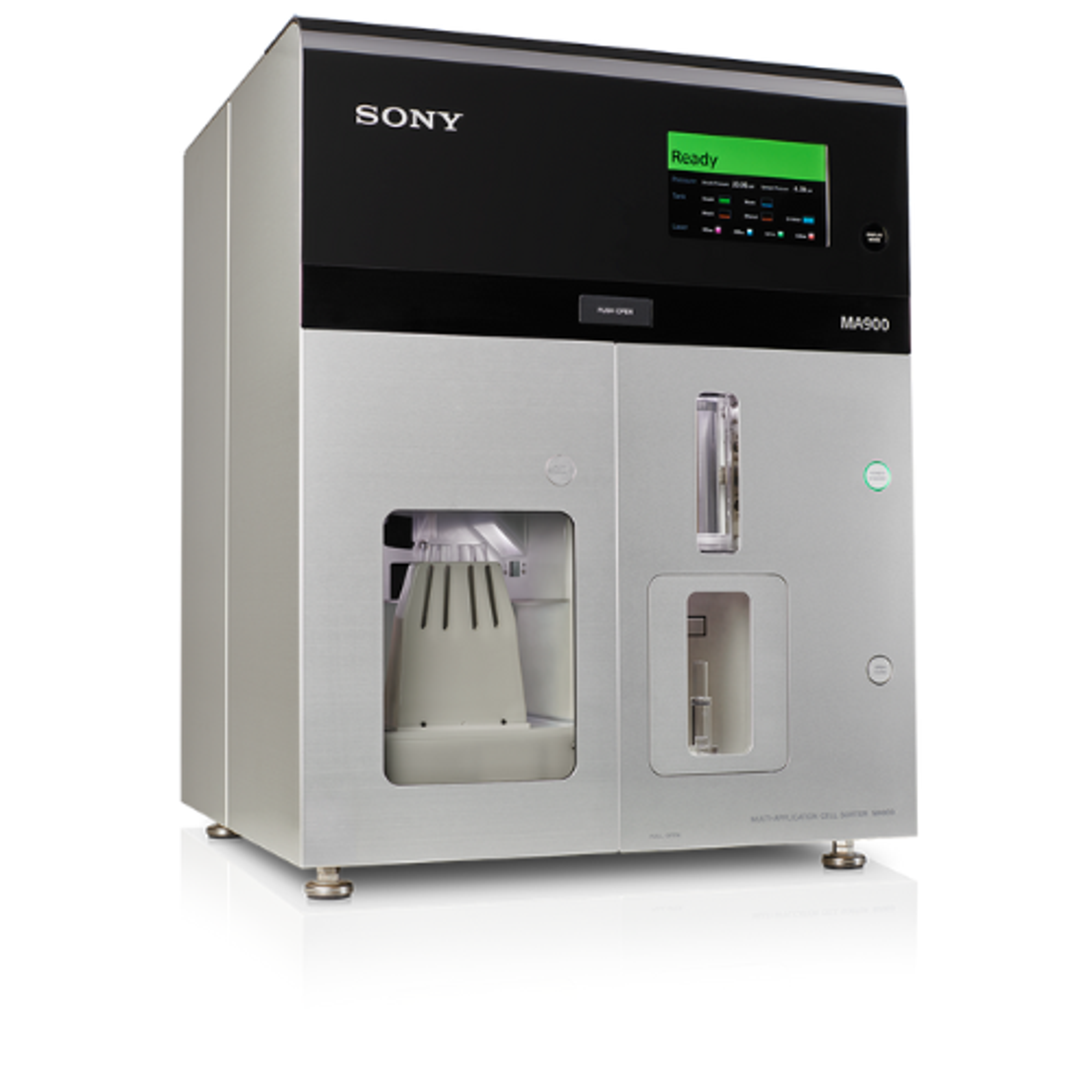Flow cytometry accelerates gut immunology research
See how the Laboratory of Mucosal Immunology at KU Leuven uses flow cytometry and cell sorting to advance our understanding and uncover new therapeutic targets for chronic gastrointestinal diseases
23 Jul 2025
It is well known that the immune system in the gut plays a pivotal role in maintaining overall health and defending against various diseases.
Groundbreaking research at the Laboratory of Mucosal Immunology, TARGID, KU Leuven, is poised to improve our understanding of the gut’s influence on health and disease states and shed light on the mechanisms underlying chronic gastrointestinal diseases such as inflammatory bowel disease (IBD).
Tools such as flow cytometry and cell sorting are proving indispensable for isolating and analyzing immune cell subsets at a granular level. These technologies enable the precise identification of immune cells in the gut, which is essential for understanding how dysregulation contributes to disease. This article explores the critical role of flow cytometry and cell sorting – in particular the MA900 Cell Sorter from Sony Biotechnology – in advancing the lab’s research.

TARGID team, Department of Clinical and Experimental Medicine, Faculty of Medicine, KU Leuven
Our understanding of gut immunology
Studying immune cells is critical to understanding gut health because the gut houses a significant portion of the body’s immune system, regulating both defense and tolerance. These immune cells help maintain a balance between the gut microbiota and the intestinal lining, preventing inflammation and diseases like IBD. Disruptions in immune responses can lead to conditions like dysbiosis and impaired immune tolerance. Furthermore, immune cells influence the gut-brain axis, linking gut health with mental well-being. Understanding these mechanisms is essential for developing targeted therapies for gut-related diseases and offers insights into more effective treatments.
The Translational Research Center in Gastrointestinal Disorders (TARGID) at KU Leuven is a leading facility focused on providing insights into the physiological and pathophysiological mechanisms underlying gastrointestinal disorders. A prominent group within this center is the Laboratory for Mucosal Immunology, led by Professor Gianluca Matteoli. This group is dedicated to studying the immune system’s role in the gut, particularly how immune responses are modulated by stromal cells, epithelial cells, and the microbiota. By revealing the mechanisms behind diseases like IBD and Crohn’s disease, the lab's findings hold promise for identifying biomarkers for early diagnosis and developing novel treatment options.
Flow cytometry and cell sorting for mucosal immunology research
One of the key technologies employed at TARGID is flow cytometry, which is used to profile immune cell subsets in diseased tissue biopsies, enabling researchers to study immune responses in conditions like IBD. “Being able to identify and characterize cells is essential for our work, so we use flow cytometry and cell sorting,” shares Matteoli. “We need to be able to sort the different cell subsets and put them in culture, which allows us to perform the experiments that validate our hypotheses. What is particularly helpful here is the fact that we can use patient-derived cells, and this further expands our transferability of our findings because then we can directly validate them in patient-relevant material.”
This group uses the MA900 Cell Sorter for isolating and sorting complex immune populations, such as myeloid cells found in the ilea of Crohn’s disease patients. For their research, obtaining highly pure and viable sorted cells is important since the four different myeloid subsets share a lot of markers but release different cytokines and growth factors. They also vary both in their proportions in an inflamed ileum and in their cell sizes. The capability of the MA900 Cell Sorter to deliver highly pure target populations allows the group to pinpoint the subsets of interest.
“The MA900 is great because it allows us to sort these cells with the 100-µm microfluidics sorting chip, and we can set the exact number of cells we want to sort into the collection tubes,” explains Dr. Bo-Jun Ke, a postdoc in Professor Matteoli’s group. “This way, we can achieve the desired yield, all while maintaining optimal speed. On top of that, the cells sorted with the MA900 are highly viable, which is very critical since we put the cells in culture to understand their function.”
Translating gut immunology research into clinical applications
The Laboratory of Mucosal Immunology is committed to bridging the gap between basic research and clinical applications. The lab works closely with clinicians, pathologists, and pharmaceutical companies to translate its discoveries into viable therapeutic solutions. Being an integral part of TARGID, the lab fosters direct collaboration with healthcare professionals and has access to patient samples to enable the validation of research findings in real-world clinical settings.
However, translating research into clinical practice presents significant challenges. Diseases like IBD are highly complex, and patient heterogeneity–such as genetic predispositions and environmental influences–must be considered when developing new therapies. As Ke explains, “Translating our findings into clinical applications requires not only identifying the right therapeutic targets but also overcoming the challenges of disease complexity and patient heterogeneity.” These challenges highlight the importance of carefully stratifying patients to ensure that emerging treatments are tailored to individual needs, thereby increasing their chances of success in clinical settings.
Future insights into gut immunology
The future of gut immunology is poised for significant advancements, driven by emerging technologies like single-cell omics and spatial transcriptomics. These cutting-edge tools provide unprecedented insights into immune responses, enabling the development of more precise and personalized therapeutic strategies.
Additionally, technologies like the microfluidics-chip-based MA900 and spectral flow cytometry play a crucial role in advancing research. These tools enable high-resolution analysis of immune cells, enhancing the study of cell functions and facilitating the identification of new biomarkers and therapeutic targets. Together, these innovations are paving the way for breakthroughs in understanding gut immunity and developing targeted treatments for diseases like IBD.
“In the next five to ten years, we believe we will have a much deeper understanding of the pathogenesis of IBD and be able to provide better care and therapeutic options to improve patients' quality of life,” Ke concludes.
Watch the full video interview with Professor Gianluca Matteoli here.

